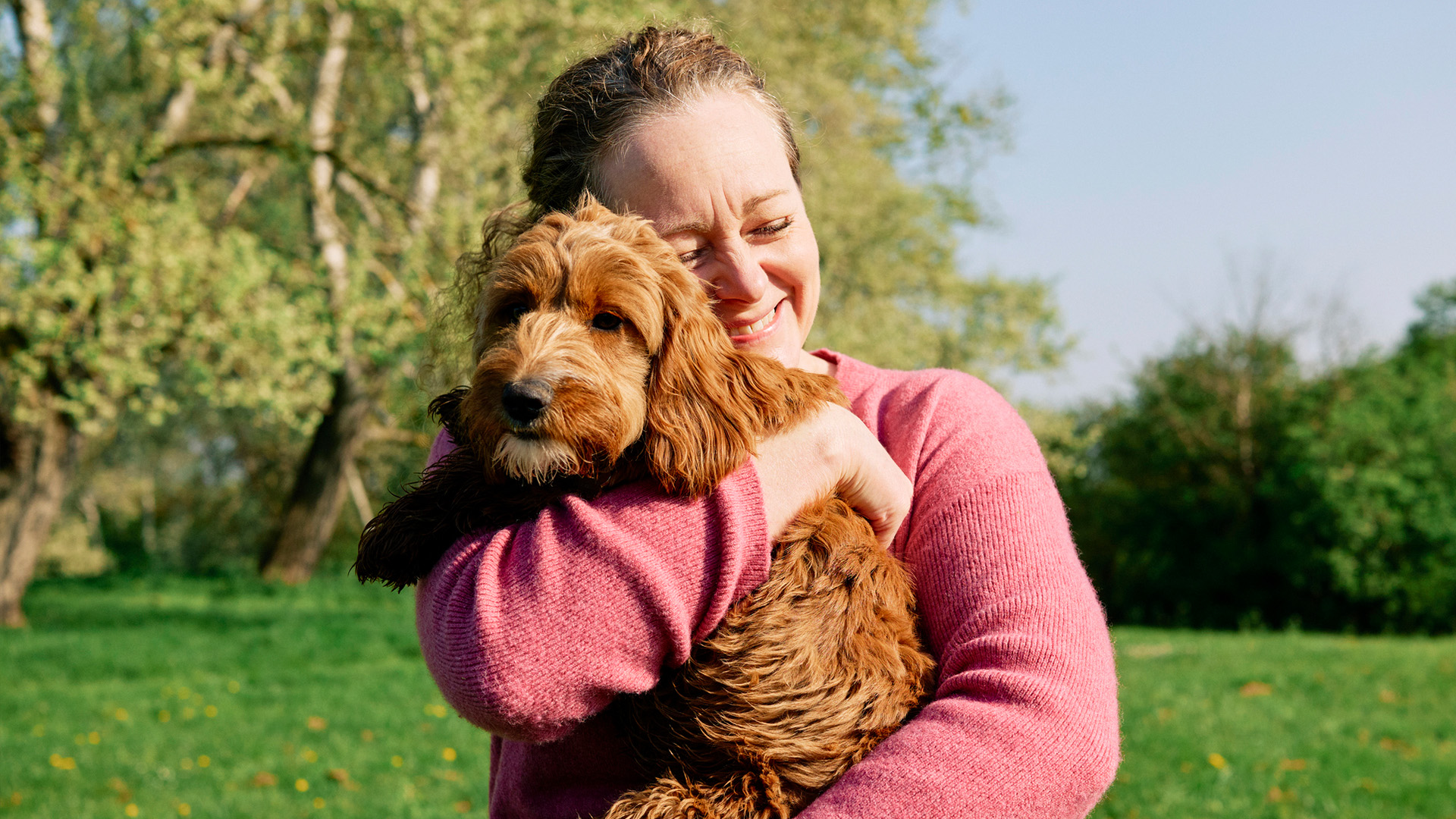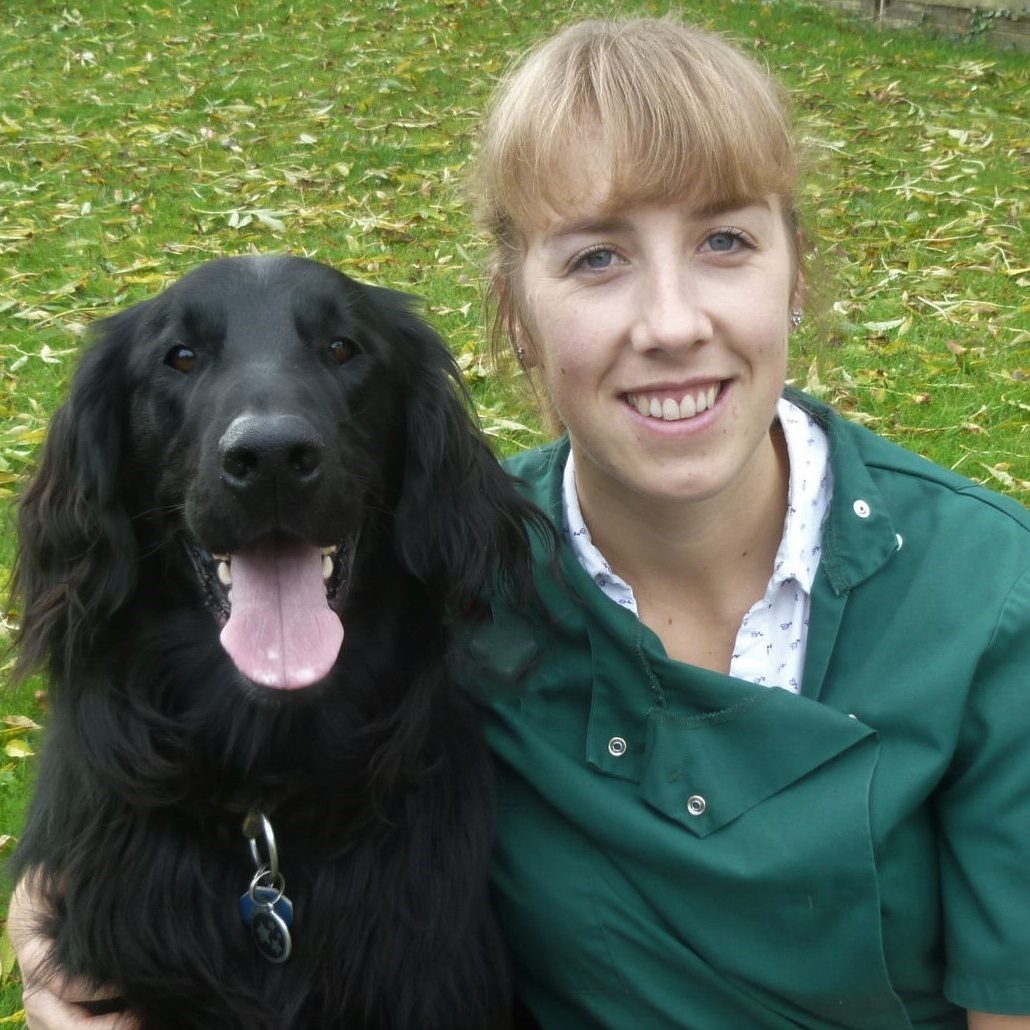How to be the best dog owner you can possibly be
Always striving to do your best? Here’s how you can show up for your pet and be the best dog owner, with advice from our vet

If you’re considering getting a dog, or recently brought one home with you, you probably want to know how to be the best dog owner you can possibly be. As dog parent’s, we all strive to be the ultimate best friend to man’s best friend.
You may already know the precise treats and exact scratch spots that result in tail wagging, but what else makes a dog's life the best it can be?
There’s a lot to think about when it comes to keeping your dog happy and healthy, so to get the lowdown with professional insight, we spoke with Dr Rebecca MacMillan, a qualified vet with more than 15 years of experience. She’ll walk us through the five key ways you can be the best dog owner and give them the best life possible.
How to be the best dog owner
When it comes to scoring A+ as a dog owner, you need to take into account the ‘Five Freedoms’, which are crucial for ensuring your dog's health and happiness. These are the basic standards of care that every pet should receive:
- Freedom from hunger and thirst
- Freedom from discomfort
- Freedom from pain, injury, and disease
- Freedom to express normal behavior
- Freedom from fear and distress
Below, we’ll take a look at each freedom in a bit more detail and find out from Dr MacMillan how to do the best job possible when it comes to each one.
Freedom from hunger and thirst
First things first, to be a good dog owner you need to ensure your dog is fed and watered appropriately.
“This means that your dog should receive a good-quality diet containing the appropriate nutrition for their size and life stage,” says Dr MacMillan. For example, your rapidly-growing puppy is going to require the best puppy food specific to their age and development. There are different considerations for feeding a senior dog, or when choosing a food for a dog with a specific health complaint.
It’s not just what you feed your dog, but how much too.
“They should also receive the correct amount of food to ensure they maintain a healthy weight. The right quality and quantity of food is essential for good health,” adds Dr MacMillan. This is particularly important considering recent research has found as many as 59% of dogs are classified as overweight, putting them at risk of reduced quality of life, shortened lifespan and a range of conditions including osteoarthritis.
If you’re new to the world of pet food, let us help you decode it. If you’re confused with ingredient jargon on the back of the pack, check out our dog food ingredient guide.
As well as access to food, you’ll want to make sure your dog has constant access to fresh water. How much water your dog should be drinking will depend on all sorts of factors from their size and breed, to the climate you live in. If you’d like to encourage them to drink, consider investing in one of the best pet water fountains. They can tempt even the trickiest of customers with their fresh, filtered water.
Freedom from discomfort
Maslow’s hierarchy of needs includes shelter right at the bottom, as a fundamental requirement for humans to thrive. And dogs are no different.
“To be a good dog owner you should keep your pet comfortable; by ensuring they have a warm place to sleep and being mindful of stressors like loud noise levels, overcrowding, or inappropriate lighting, such as bright lights when trying to sleep at night,” says Dr. MacMillan.
Treat your dog to one of the best dog beds, and then choose a relaxing, quiet area in your house for it to go. This can be your dog's go-to place for sleeping, as well as resting and having a bit of me time.
Freedom from pain, injury, and disease
“Other ways you can keep your pet healthy include regular vet checks to keep them free from disease and pain. It is also important to seek help promptly if you suspect your pet has an injury or illness; to not do so would be in breach of The Five Freedoms,” advises Dr. MacMillan.
Common health complaints for dogs include gum disease, ear infections, obesity and arthritis. Their love of walking can also make them vulnerable to parasites like ticks and fleas. The best way to handle all health concerns is to get them quick, professional care.
Pet healthcare can be expensive, so the cost of owning a dog and caring for it is definitely something to take into consideration before committing to bringing one home.
“Insurance can help owners cover the costs of medical treatment and is something that all owners should consider. Preventative treatments like vaccinations and anti-parasite treatments are also strongly advised,” says Dr. MacMillan.
Not sure where to begin with pet insurance? Read our guide on how to choose the right pet insurance for you and your dog.
Freedom to express normal behavior
If you decide to get a dog, you have to accept he or she is a dog and that means they're going to, well, act like a dog. This means allowing them to express normal behaviour and providing them an outlet for this, not getting annoyed with them and wishing it were otherwise.
“Your dog should be allowed to express normal behavior through exercise, play, and socializing. Toys should be used to give dogs an outlet for other key behaviors like chewing or digging. Basically speaking, dogs should be allowed to be dogs,” says Dr. MacMillan.
Check out our round-up of the best dog toys, including the best frisbees, balls and gadgets to make your dogs tail wag. And if you’ve never had a dog before, you might be at a loss when it comes with exactly how to play with a dog or how to keep a dog mentally stimulated – but we’ve got you covered.
Freedom from fear and distress
Last of all, your dog will need a bit of TLC.
“Dogs need to receive plenty of love and positive attention, mental stimulation, and the right levels of exercise for their breed. You can improve the quality of your dog’s life by working on these three key areas, as well as ensuring their medical and nutritional needs are met," says Dr. MacMillan.
You need to make sure that your dog's environment, and the way you interact with him or her, doesn't cause them any mental suffering. This can mean making sure your house isn't filled with too many pets for its size, providing mental and physical enrichment and taking your dog out for regular walks. If your dog begins to exhibit any signs of fear or distress or anxiety, you should consider working with a dog behavioural specialist to get to the bottom of the issue.
How to give your dog the best life
To recap, to give your dog a happy life you’ll need to make sure they're fed the right quality and quantity of food, have a comfy safe place to sleep and that you take them to the vet whenever you have a concern about their health.
You also need to allow them to be a dog and express their natural behavior and ensure that you have a positive relationship that allows them to live their best life free from fear. You can be a good dog owner by following local dog ownership laws and keeping these five principles in mind at all times.
Enjoyed this feature? You may also want to read about how to show your dog you love them and learn to spot the signs a dog loves you back. Or check out the most common mistakes pet owners make.

Rebecca is a veterinary surgeon who graduated in 2009 from the Royal Veterinary College in London. She has a wealth of experience in first opinion small animal practice, having done a mixture of day-to-day routine work, on-call emergency duties and managerial roles over the years. She enjoys medicine in particular and she is proud to have recently achieved a BSAVA postgraduate certificate in small animal medicine (with commendation). She writes on various feline and canine topics, including behavior, nutrition, and health. Outside of work and writing she enjoys walking her own dog, spending time with her young family and baking!
PetsRadar Newsletter
Get the best advice, tips and top tech for your beloved Pets

Abby is a freelance writer and dog owner. She currently has two golden retrievers, Lowen and and Indy, but has previously had many other pets, including rabbits.
Abby has written for Metro, House Beautiful, Fit+Well, and more. Alongside this, Abby also volunteers at a local dog rescue centre, helping out with daily activities, such as walking, feeding and grooming.
